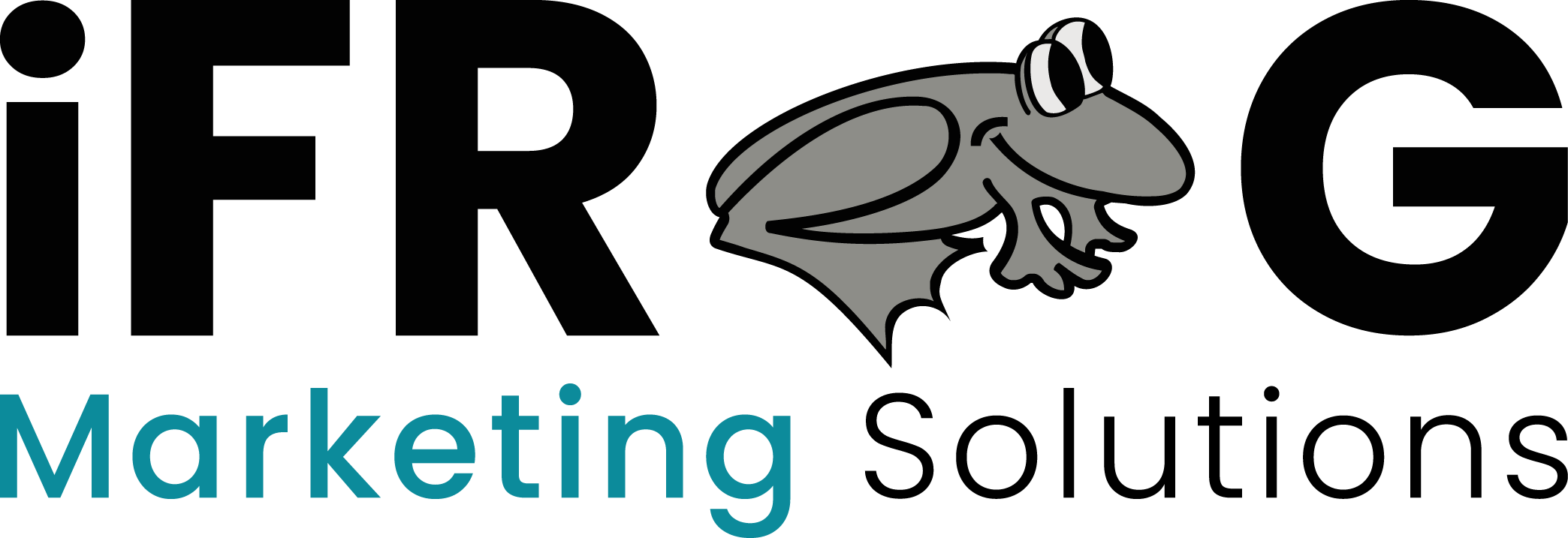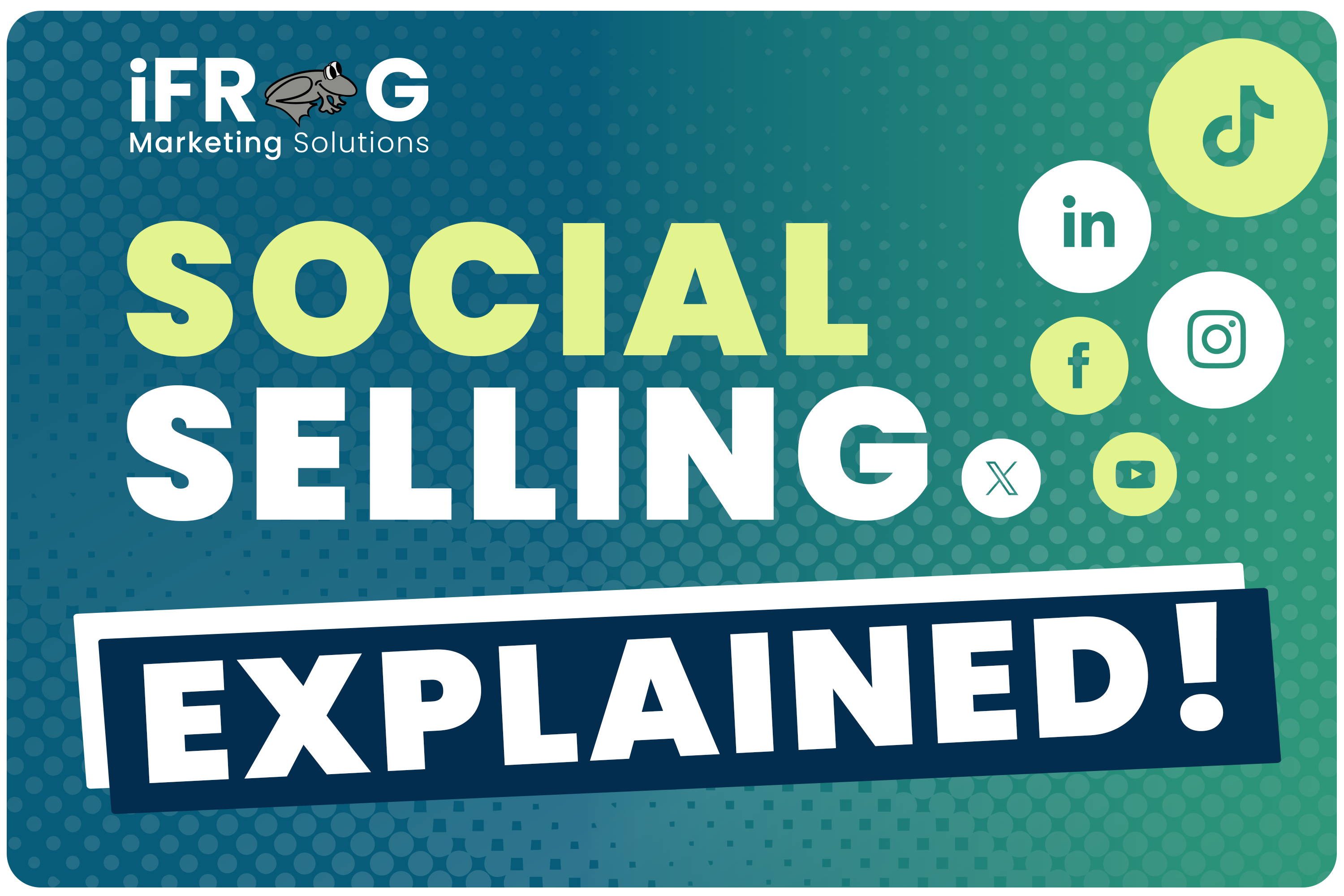As the world changes and moves on to new social media trends and online platforms, successful businesses adapt to effectively market to potential customers and grow brand awareness as their targeted audience evolves. Today, the most effective way for businesses to market to potential customers is through online platforms. Both on our phones and our computers, humans today are completely immersed in the world of social media. In fact, according to a 2023 study from Statista, humans spent an average of over 2 hours and 30 minutes each day on various online platforms. Naturally, this makes social media the perfect breeding ground for effective new social selling strategies.
What Exactly is Social Selling?
Social selling is a method in which businesses use social platforms and networks (both online and in-person) to connect with potential customers on a social level to market their brand and products. The goal is to acquire interest or trust from your audience so that, when they are ready to buy, your brand is the first thing the audience thinks about. The sales aspect is not overt. The idea is that by engaging and interacting with potential customers on a more personal level, they will be more likely to buy the given product, become a returning customer, and endorse the brand through online platforms or word-of-mouth.

How Can Social Selling Help Automotive Dealerships?
In recent years, social selling has begun to revolutionize the automotive industry. While developing a personal, in-person rapport with customers has always been a productive strategy for car salesmen, it is no longer the only way to build trust with a customer. Let’s take a look at some of the most effective automotive social selling strategies used by successful businesses:
Following Up:
When selling a car, the one-on-one trust-building process starts between the customer and the salesperson. However, it doesn’t end when the sale is complete or when the customer leaves without making a purchase. By getting their contact information and consent to contact them, following up with a customer via email or text is one of the best ways to build a relationship and establish trust. A simple, “How are you liking the new car?” text goes a long way and can be the difference between a one-time customer and a returning customer.
Social Media Presence:
As reported by Instagram, 200 million users visit a business account each day, while 90% of all users follow business accounts, and another 80% of all users research their potential purchases through the platform. This makes it a no-brainer for individual salespeople and dealerships to establish a social media presence. Recent LinkedIn studies have even shown that salespeople who effectively utilize these social selling methods are 51% more likely to meet their quota than those who don't. In fact, many car salespeople and dealerships have gained millions of views on TikTok alone for posting funny and informative videos about themselves, their inventory, and the dos & don’ts of car buying.

Vehicle Service:
These strategies aren’t just for the sales department. Social selling extends to service technicians, as well. Service centers and mechanics are often incorrectly stereotyped as less than honest people. To combat this, service techs can build trust by showing customers that they care more about their safety than their money. Just take a look at the messages above. These texts were sent to iFrog’s own Katie Schisler, from a mechanic who was concerned with the remaining tread on her tires and a nail that had punctured one of them. This is a prime example of effective social selling.
Community Management:
This is 100% the best way to address a customer directly and publicly on a platform that is specifically used to communicate customer reviews. How you respond to a review is just as important as your rating and can greatly affect customer retention. Respond to happy customers by name to thank them and embrace the relationship you have built with them. Respond to negative reviews with immediate concern and readiness to address and resolve any issue they may have had. However, good or bad, you will occasionally need to handle unique situations. In those events, the best response is always the polite response.
What Are Some of the Social Selling Strategies Used By iFrog?
At iFrog, effective marketing is the name of the game. We are constantly growing and adapting to stay in line with the ever-changing landscape. Our goal is to optimize every aspect of social selling through community management, organic media (social posts), and paid media (boosted social posts and paid or sponsored ads). However, there are a few things that need to be understood to effectively use these social selling methods, starting with the Six Degrees of Separation, which is the idea that every person in the world is socially connected by six or fewer network connections. Ex: I know someone who is currently a professional football punter (let’s call them John) → he knew another player (let’s call them Tom) who won an American football championship and subsequently met the President of the United States. So, I know John, who knows Tom, who knows the President — I am two social connections away from the President. According to a Facebook study, the average degree of separation of nearly 4 billion Facebook users is around 3½ connections. Most of our social selling revolves around this idea. Everything we put out on social media is meant to gain views and shares, even if we aren’t directly advertising a product. In fact, some of our most successful strategies and campaigns revolve around the Six Degrees of Separation, but are not product-focused advertisements. What are they?
Sell Yourself:
If you’re on TikTok, Instagram, Facebook, YouTube, or any other form of social media that produces short video feeds, you may have noticed trends among car salespeople. It is clear that selling your personality as an individual will drive sales. We see it every day; sales people interacting directly with consumers on social media, and using these platforms to project themselves. Customers will see your personality online and attach themselves to it, building a personal connection before the first direct interaction. Get yourself out there. Entertain your customers, boast your knowledge, show your face, and convince your potential customers that YOU are the individual they can trust. Be silly, be relatable, be an opinionated expert. Show your audience who you are.
Individual Highlights:
One of the best ways to gain trust, get views, and increase engagement, is to highlight an individual customer or employee. This can range from a “Happy Birthday” or “Happy Retirement” post to a congratulatory “Happy Customer” post. Someone is bound to recognize the individual in the post and leave a comment, give a like, or share it with friends and family. This is one of the best ways to form a personal relationship between an audience and a partner.
Community-Focused Social Selling:
There are a few ways to localize a post and generate buzz throughout a specific demographic or community, like paid geofencing, where posts only appear to users in a specific location. However, some of the more personal ways to gain potential customers are to directly engage in community efforts and to work with popular figures and events in the community. A strong example would be a recent video series from one of our partners who sponsors a local Baltimore professional football star. The videos are funny, simple, and humanize the star and dealership. There is nothing advertised, but the videos are entertaining and have been shared by tons of Baltimore football fans, gaining thousands of views.
In Summary
These methods are certainly not our only social selling strategies, but they are strong examples of how a foundation and understanding of social networking are necessary for successful marketing. Yes, we have a lot of success with paid media and direct product advertising, but a lot can be done through organically connecting with a community and utilizing the Six Degrees of Separation to increase shares and brand awareness.

How To Measure Social Selling Success
Measuring success is relatively easy through platforms that keep track of post-performance data, though a detailed understanding of the different post statistics is important. While there are a lot of different categories to look at and compare with a competitor’s performance, some of the most important statistics include:
- Reach: How many feeds a post appears on
- Impressions: How many times a post was seen
- Engagements: How many people interacted with the post
- Engagement Rate: Engagement per impression
- Post clicks: How many people engaged with a link or video
We track these statistics and more on both broad and narrow scopes, helping us to understand what is working, what trends are changing, and how we can improve. However, post-performance is just one of many ways to measure success. Two of the most important factors to measure are customer testimony and partner success. Customer testimony is seen in community management and is the only straightforward way to receive feedback directly from a targeted audience. Ultimately, partner success is the most important way to measure social selling because, in the end, that’s all that matters. As a marketer, the goal is to get customers in the door and consistently grow the business.
Effective Marketing
While there are many aspects and strategies that go into effectively marketing a brand, social selling has been a pillar in advertising. Even off of social media, social selling will keep audiences engaged in not just a product, but a business as a whole. Everything boils down to how you can encourage engagement and generate interest from an audience, and it all starts with social selling.
Are you ready to start socially selling yourself or your business? Trust the experts at iFrog! Contact us or email our team for a consultation at sales@ifrog.com.


Comment